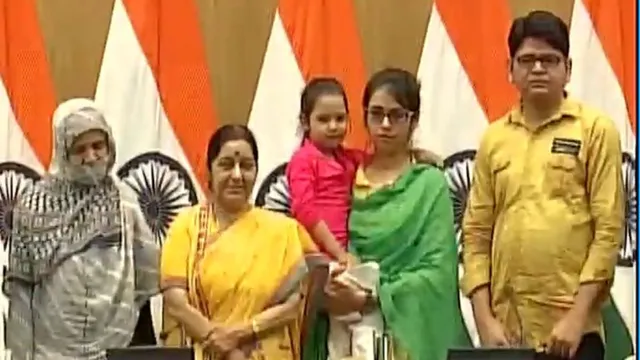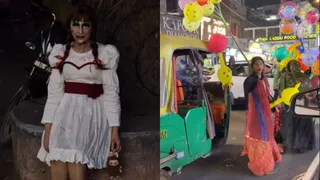- By Supratik Das
- Fri, 16 May 2025 12:34 PM (IST)
- Source:JND
Eight years ago, Uzma Ahmed became the face of cross-border trauma and diplomatic rescue when she returned to India after being allegedly forced to marry a Pakistani man at gunpoint. Uzma's tale is a stark reminder of the horrors many women encounter when trust turns into terror across borders.
Who is Uzma Ahmed
Uzma Ahmed was a Delhi girl when she met Tahir Ali, a Pakistani guy, on her visit to Malaysia in 2016. It was an online friendship initially, but it soon turned into a romantic affair. In May 2017, Uzma travelled to Pakistan to meet Tahir in person, expecting a future of love and stability. But the reality was far from it. Shortly after she arrived in Pakistan on May 1, 2017, she was brought to the Buner district of Khyber Pakhtunkhwa province. There, on May 3, she was forced to marry Tahir at gunpoint. Uzma later claimed she was drugged, beaten, threatened, and mentally tortured. Her mobile phone was taken away, and her movements were restricted.
In fear for her life, Uzma escaped and made it to the Indian High Commission in Islamabad. From there, she requested legal assistance and protection. Tahir Ali lodged a case in the Islamabad High Court, claiming Uzma was his wife and was being held against her will. Uzma, on the other hand, filed a counter-petition, accusing coercion and seeking an urgent return to India.
Recommended For You
India's Diplomatic Mission To Bring Her Back
Next, the then Deputy High Commissioner JP Singh was the key person to safeguard Uzma inside the High Commission. He made sure she was provided with legal representation and accompanied her through the high-strung court hearings. Then, External Affairs Minister Sushma Swaraj took charge of bringing back Uzma. On 24 May 2017, the Islamabad High Court decided in Uzma's favor, and she was permitted to return to India. Pakistani security personnel escorted her on 25 May to the Wagah border and welcomed her back by Indian officials.
What Uzma Said After Returning To India
During a press conference in New Delhi with EAM Sushma Swaraj, Uzma broke down in tears. “It’s easy to go to Pakistan, but very tough to return. Pakistan is a well of death,” she said. She disclosed that she was assaulted, intimidated, and intoxicated into signing the wedding papers. “They scared me so much, I signed. I agreed to marry him to protect my daughter,” she said. Uzma thanked the Indian government, the High Commission, her Pakistani lawyer Shahnawaz Noon, and Sushma Swaraj, whom she referred to as a mother figure. "For the first time, I understood how precious my life is," she said. "I am an orphan, but India treated me like family."
Today, in her early 30s, Uzma lives a low-key existence out of the public limelight, sometimes addressing women's security and diplomatic conferences. Her case continues to be employed in training courses for Indian diplomats as a case study of crisis management and cross-border rescue. Uzma's transformation from terror to liberation, however, is still etched in the nation's psyche, an unforgettable symbol of the human aspect of diplomacy, and the unshakeable determination of a woman who would not be silenced.


-1761934340045_m.webp)



